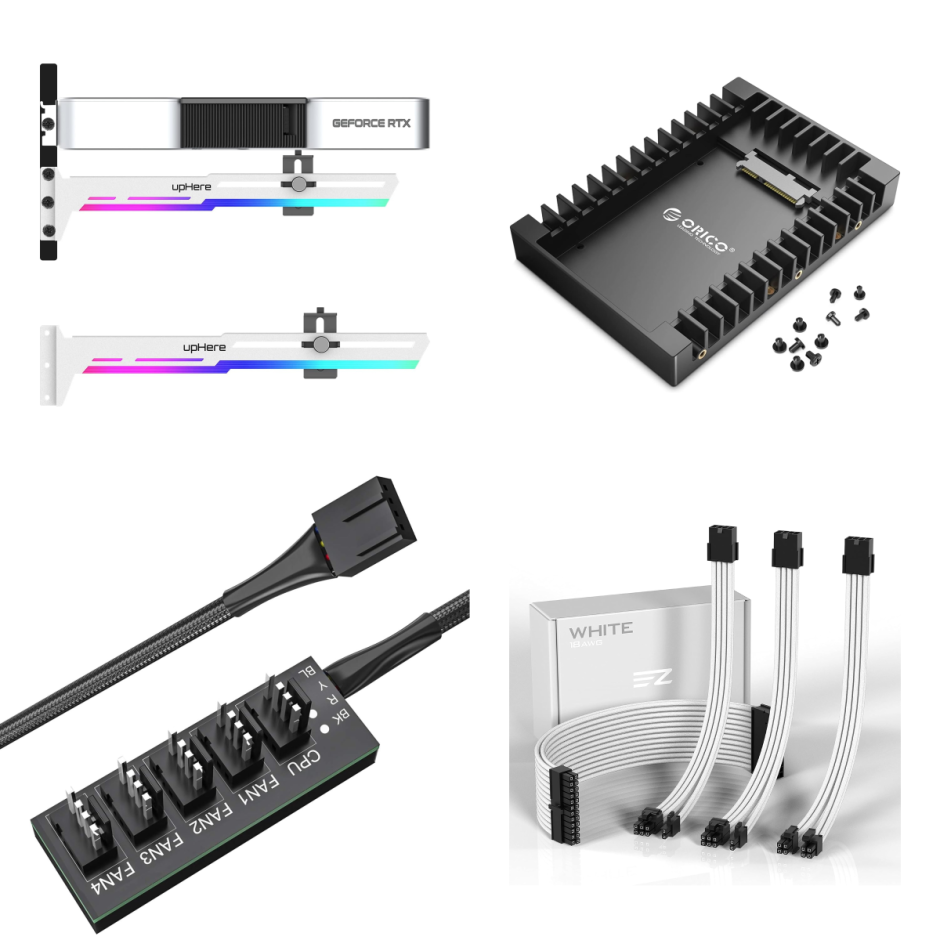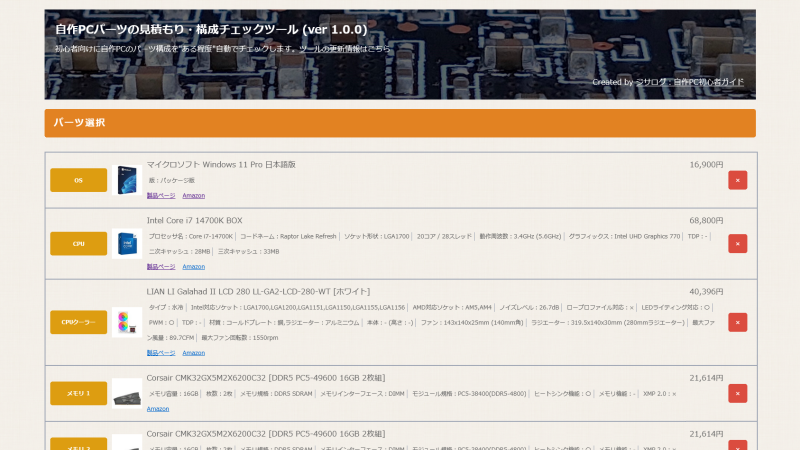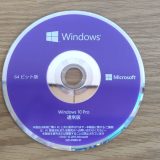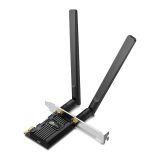When building a custom PC, not only the main PC parts but also accessory parts are important.
These accessory parts help with assembly and make the process smoother.
Basically, it is fine to buy them when it becomes clear that they are needed, but knowing in advance what kinds of accessory parts exist can help avoid panic if a situation arises where assembly cannot proceed.
This article explains in detail about accessory parts such as GPU support brackets, 2.5-inch conversion mounts, and extension or conversion cables.
Tools necessary for building a custom PC, such as screwdrivers, are also explained, so be sure to check before purchasing parts or starting assembly.
≫ Related article: What You Need to Build a Custom PC (Tools, Anti-Static Goods, etc.)
For other parts, basic knowledge, roles, and how to choose from the perspective of performance and compatibility are also explained, so please refer to them.
≫ Related article: PC Parts List and Explanation of Each PC Part [A Must-Read for Custom PC Beginners]
Select PC parts and online stores to instantly generate an estimate, check compatibility, and calculate power requirements. You can save up to five different builds, making it easy to try out multiple configurations.
≫ Tool:PC Parts Estimation & Compatibility Check Tool
Table of Contents
About Accessory Parts for Custom PCs
First, here is an explanation of what accessory parts for custom PCs are.
The Importance of Parts That Assist Assembly
When building a custom PC, not only main parts like the CPU and memory but also auxiliary accessory parts may be needed.
For example, parts to support the GPU or parts to convert or extend power supply cables.
Basically, these are unnecessary if the PC parts come with them or if compatibility is checked carefully in advance.
However, for first-time custom PC builders, there is a lot to learn about parts and compatibility to check, and sometimes focus on budget or performance leads to missing some checks, so mistakes may only be noticed during assembly.
In such cases, knowing that accessory parts can make assembly possible is important.
Since all parts are expensive, buying replacements should be a last resort. Before that, consider whether accessory parts can solve the problem.
It’s Fine to Buy When the Need Becomes Clear
If it is already known that something is needed, purchase accessory parts together with the main parts.
However, sometimes the need only becomes apparent during assembly, so buying them after realizing the need is not too late at all.
In fact, extension and conversion cables exist for such situations, so if the need is known in advance, it is better to review the parts and avoid unnecessary purchases.
Knowing What Exists in Advance Prevents Panic
Just knowing what accessory parts exist in advance can help avoid panic if it becomes clear during assembly that something is missing.
In reality, discovering during assembly that a cable is too short or the type is wrong can be very stressful.
Thoughts like, “Wait, the cable doesn’t reach… Did I waste 200,000 or 300,000 yen?” or “Replacing the power supply will cost another 10,000 yen…” may occur.
If it is known that accessory parts can solve the problem in such situations, there is no need to panic, so be sure to know what kinds of parts are available in advance.
Accessory Parts for Custom PCs
Let’s look at what specific accessory parts are available.
GPU Support Bracket
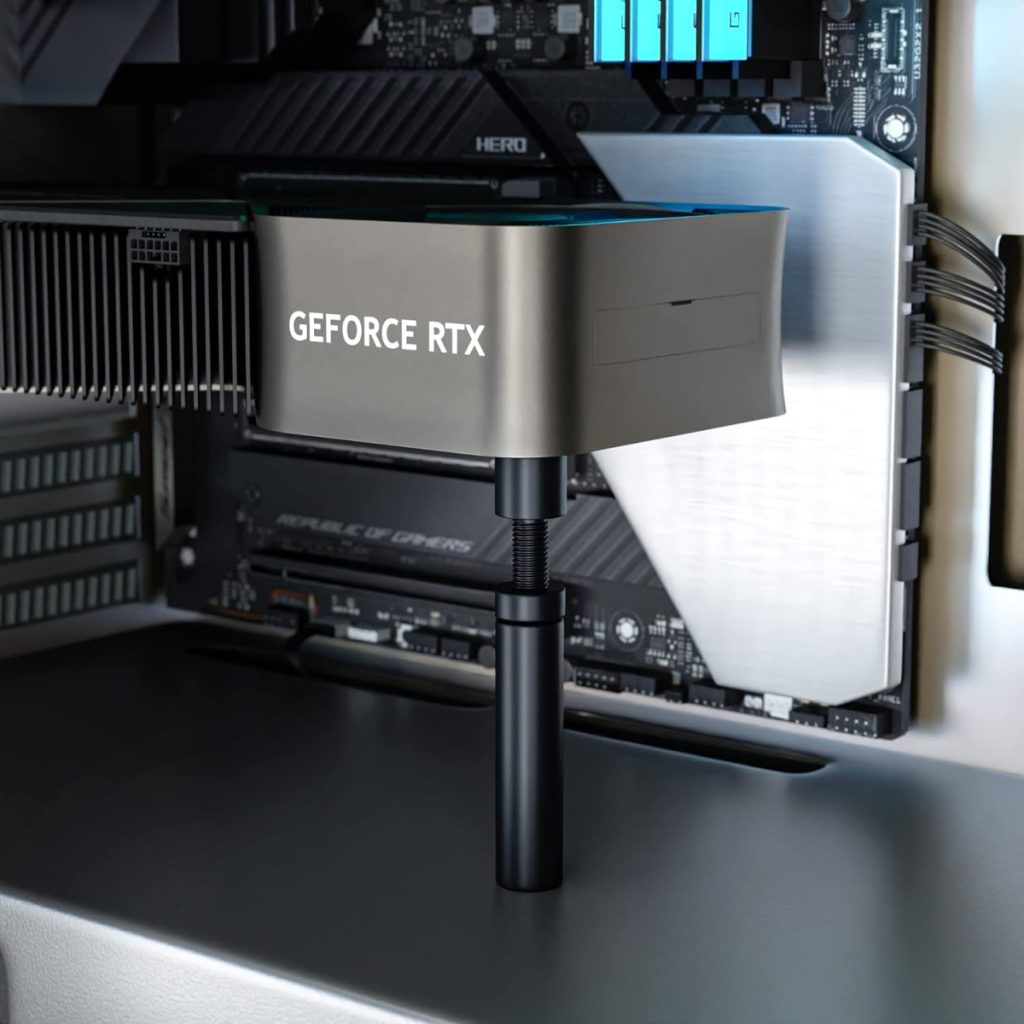
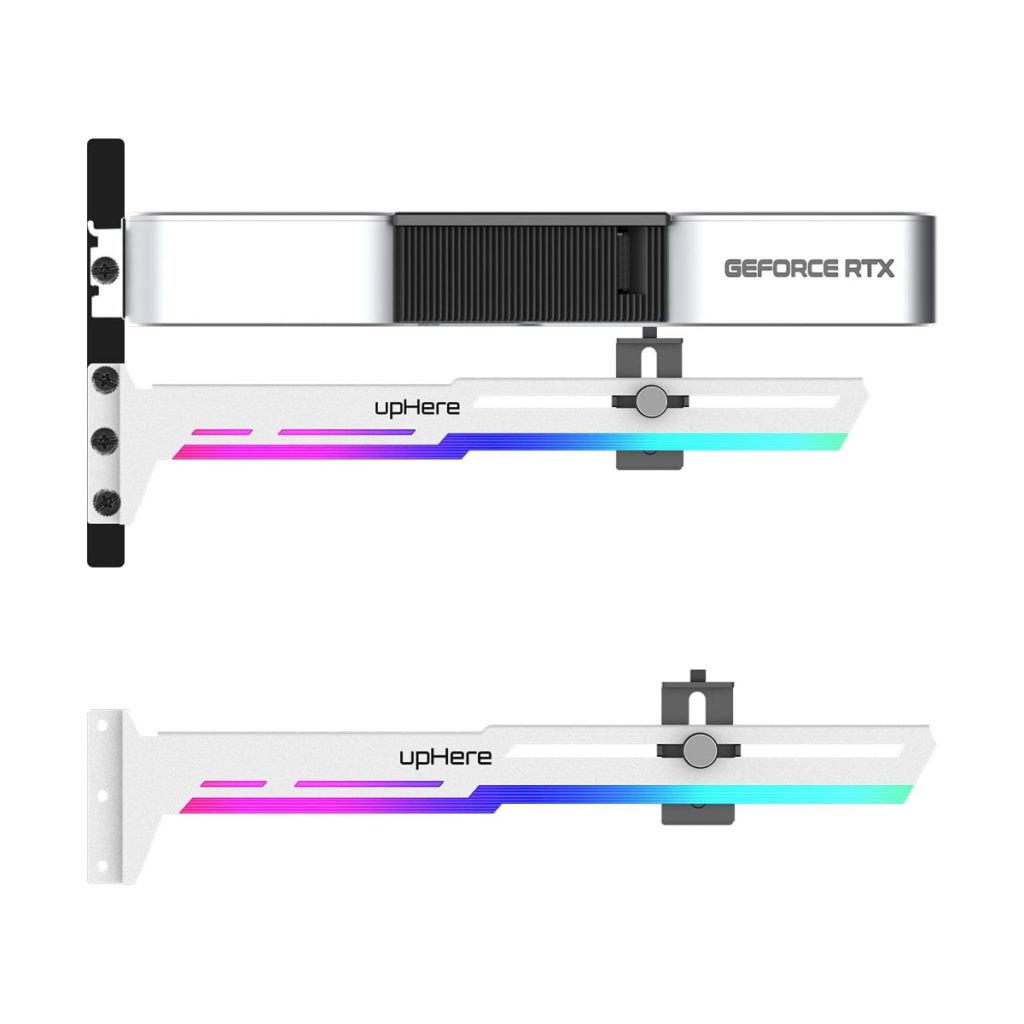
Some graphics cards come with a support bracket, so consider purchasing one separately depending on the situation.
Especially when using large and heavy graphics cards, the card may sag or put stress on the PCI Express slot after long-term use.
To prevent this, using a GPU support bracket can firmly support the graphics card and reduce sagging and stress on other parts.
The higher the performance of a graphics card, the larger and heavier it tends to be.
On Pasolog, which is operated by the author, more than 50 PCs have been reviewed with various internal configurations, and for RTX 3070, RTX 4070 and above, GPU support brackets are often used.
They are not used in every case, but if manufacturers judge them necessary, it is worth considering.
The author also thinks that for such high-performance and large graphics cards, a GPU support bracket is a good idea.
![]() Ken-san
Ken-san
GPU support brackets are generally installed inside the case and often have adjustable designs.
This allows them to fit various sizes and shapes of graphics cards.
There are types that support like a prop, and types that are screwed in, so check in advance if the PC case has screw holes for installation if using a product that requires screws.
Additionally, GPU support brackets can also enhance the appearance of the PC. Some models have built-in LED lights, making the inside of the PC case look even better.
This makes them an attractive option for users who care about both performance and appearance.

2.5-Inch Conversion Mount
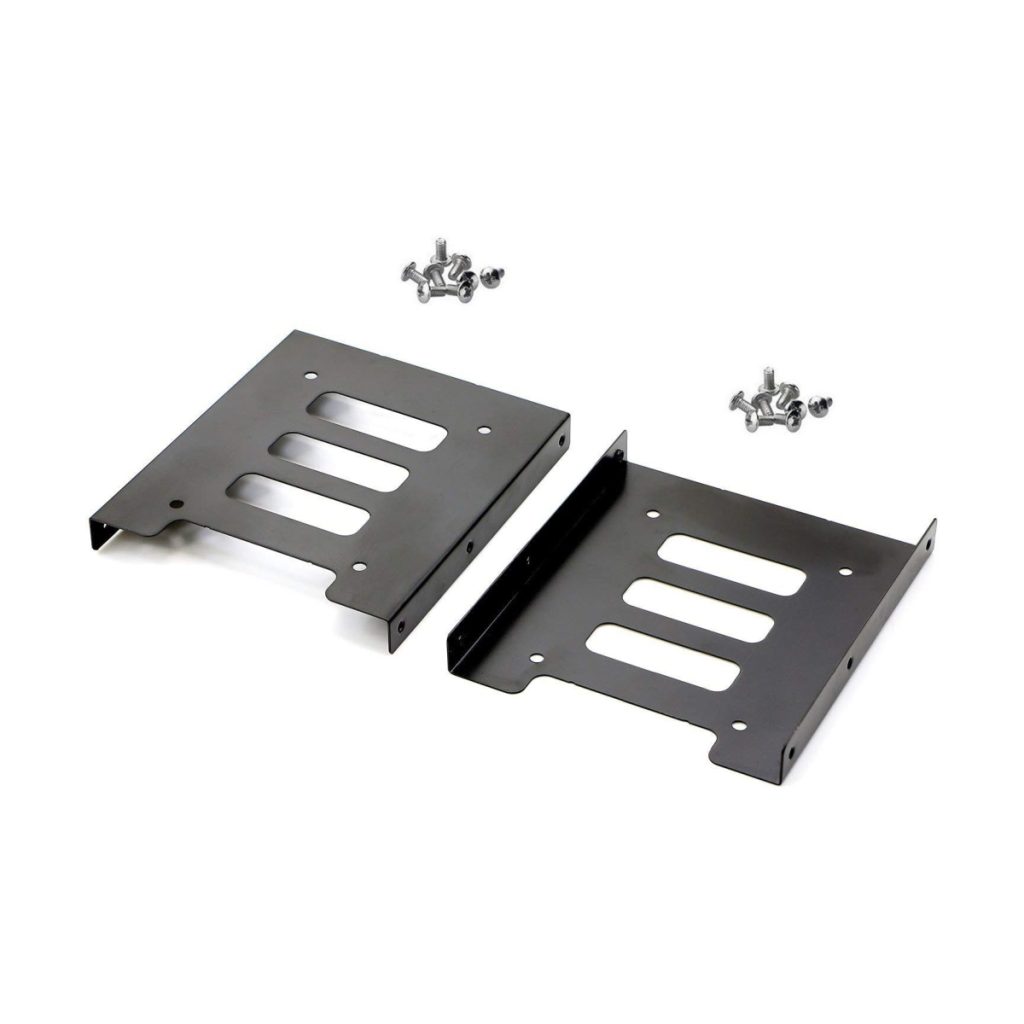
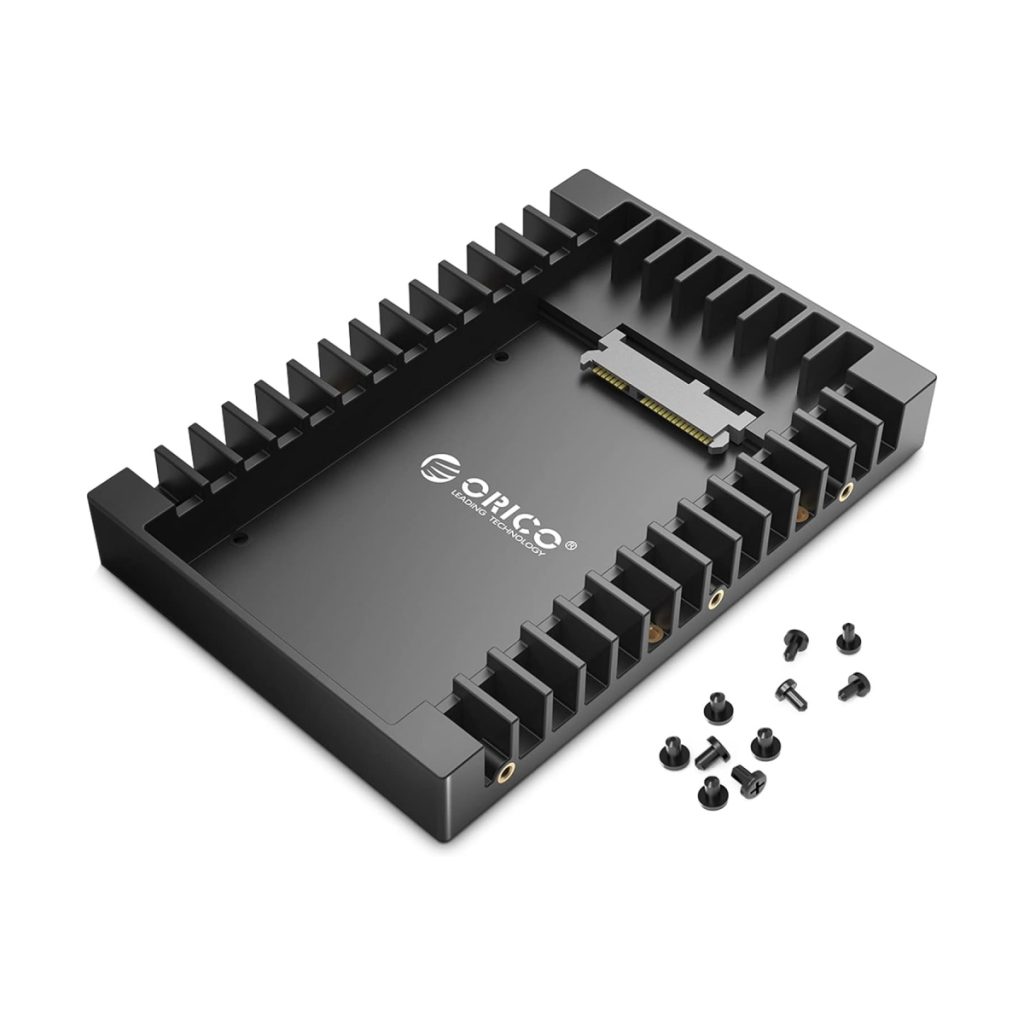
Basically, installation is easy as it only requires fixing with screws.
If there is a PC case you want to use but it only has 3.5-inch bays and not enough 2.5-inch bays, this mount solves the problem.
This way, there is less need to give up on a desired PC case due to a lack of 2.5-inch bays, so knowing about this accessory part can expand your PC case options.

Power Extension Cable
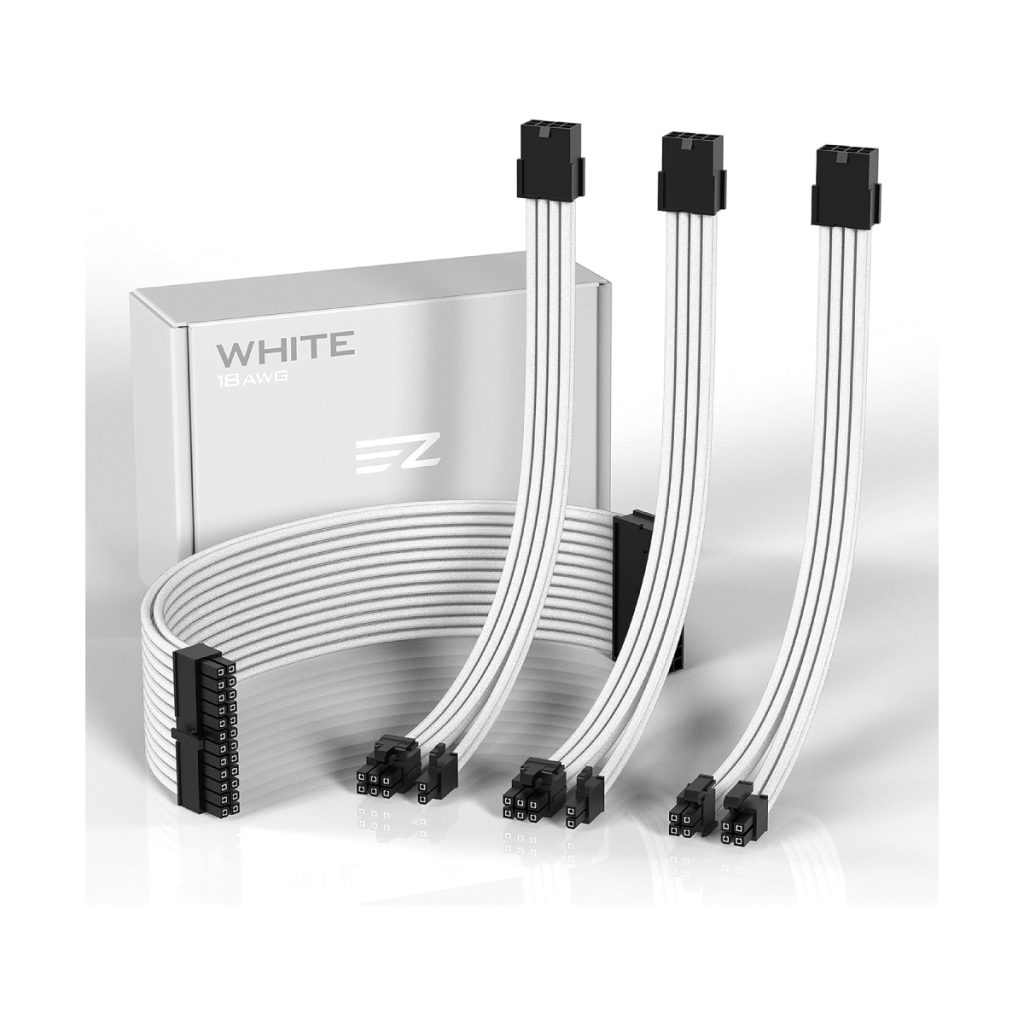
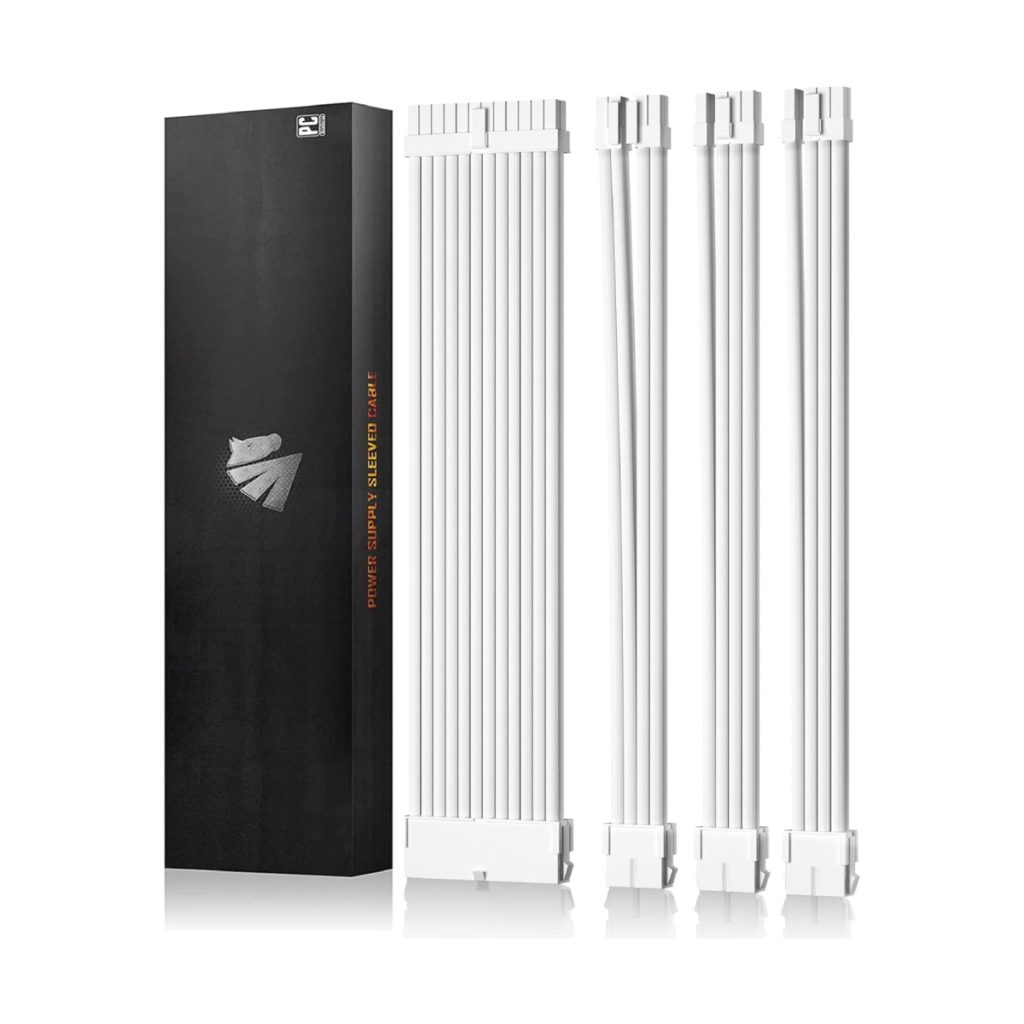
There are many types of cables, and various extension cables are available to match them.
Some power supply specifications kindly list the length of each cable, but the required length depends on the parts configuration, so it is hard to know if the cables are long enough until actual assembly.
Especially when using large motherboards like Extended ATX and large PC cases, cable length may be insufficient.
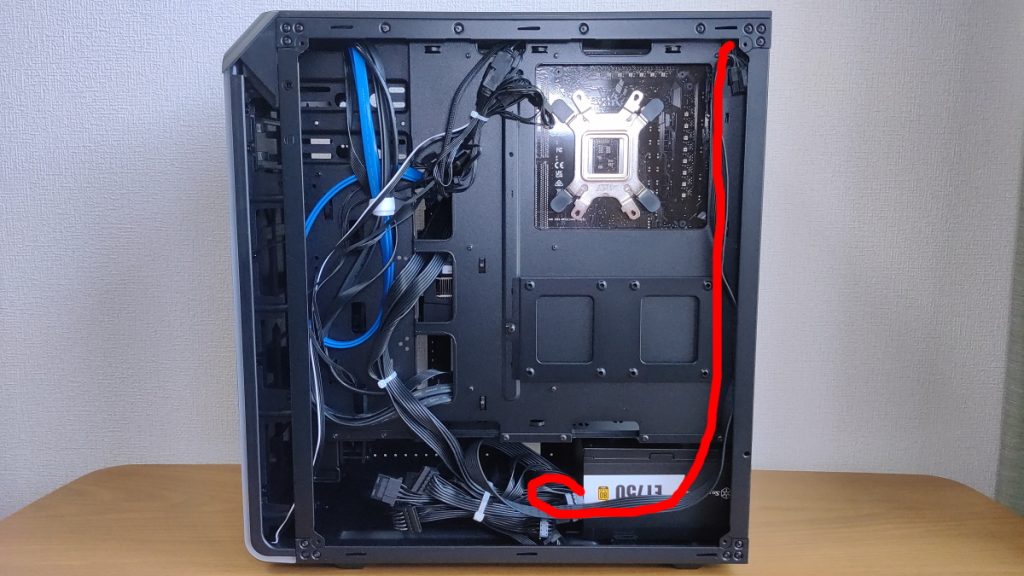
For example, the CPU connector is often at the top of the motherboard, while the power supply is often at the bottom.
As shown in the image, the cable is routed from the very bottom to the very top inside the case, then through a hole to the CPU connector near the top of the motherboard.
If you want to do cable management behind the motherboard tray, a slightly longer cable is needed, and using a large motherboard or case, or depending on the position of holes for cable routing, the cable may not be long enough.

Power Conversion Cable
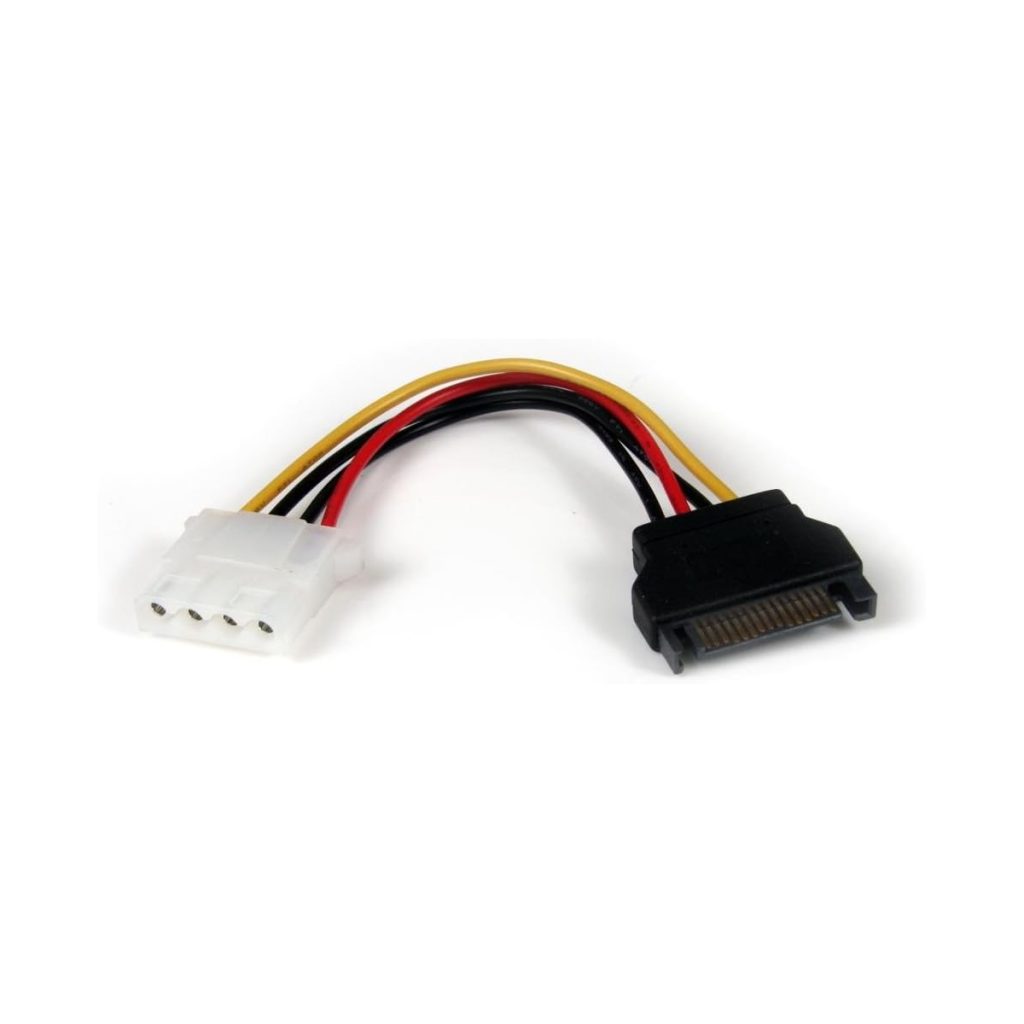
The main types of conversion cables are:
- Peripheral connector ⇒ SATA connector
- 8-pin PCI Express connector ⇒ 6-pin PCI Express connector
- PCI Express connector ⇒ SATA connector
- SATA connector ⇒ Peripheral connector
Depending on the power supply, there may be too few cables, or the number of parts may be higher than usual, causing a shortage of cables.
In such cases, converting surplus cables to the needed type can solve the problem.
Ideally, the types and numbers of power supply cables should be checked against the parts configuration when selecting parts, but if a mistake is made, consider using a conversion cable.

Fan Connector Expansion
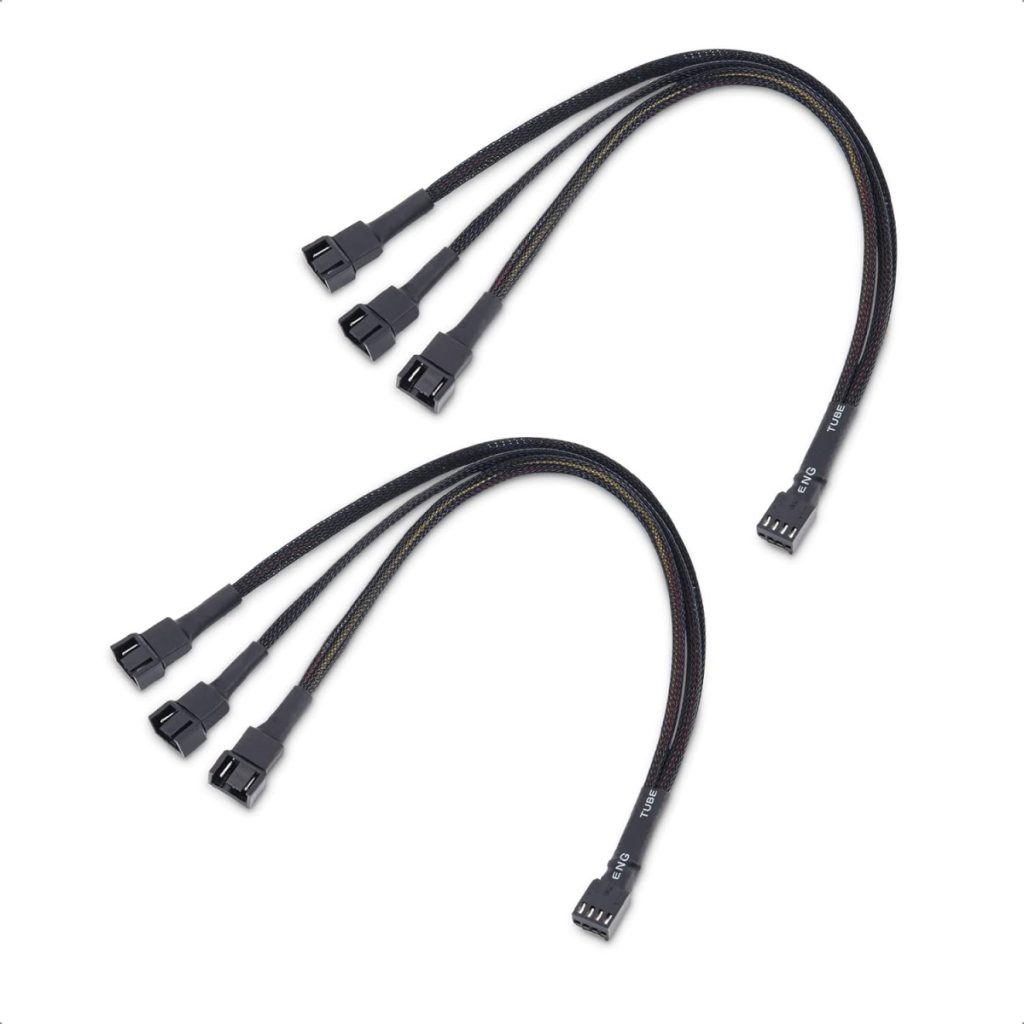
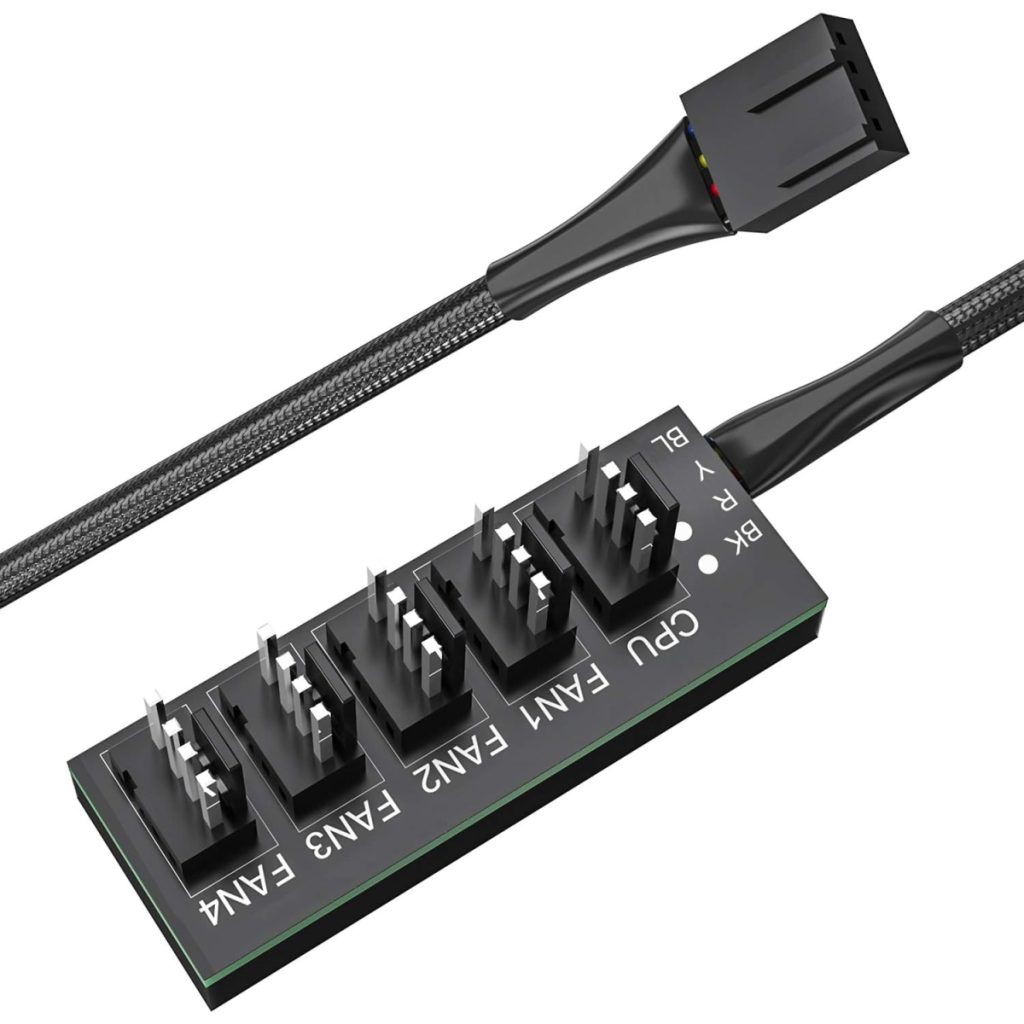
Usually, motherboards have about 3 to 5 fan connectors, but if that is not enough, this part is used.
If only the case fans that come with the PC case are used, the fan connectors on the motherboard are usually enough.
However, if more cooling performance is needed, or if LED fans are used to fill all case fan slots for appearance, there may not be enough connectors, so this part is useful in such cases.

Screw Set
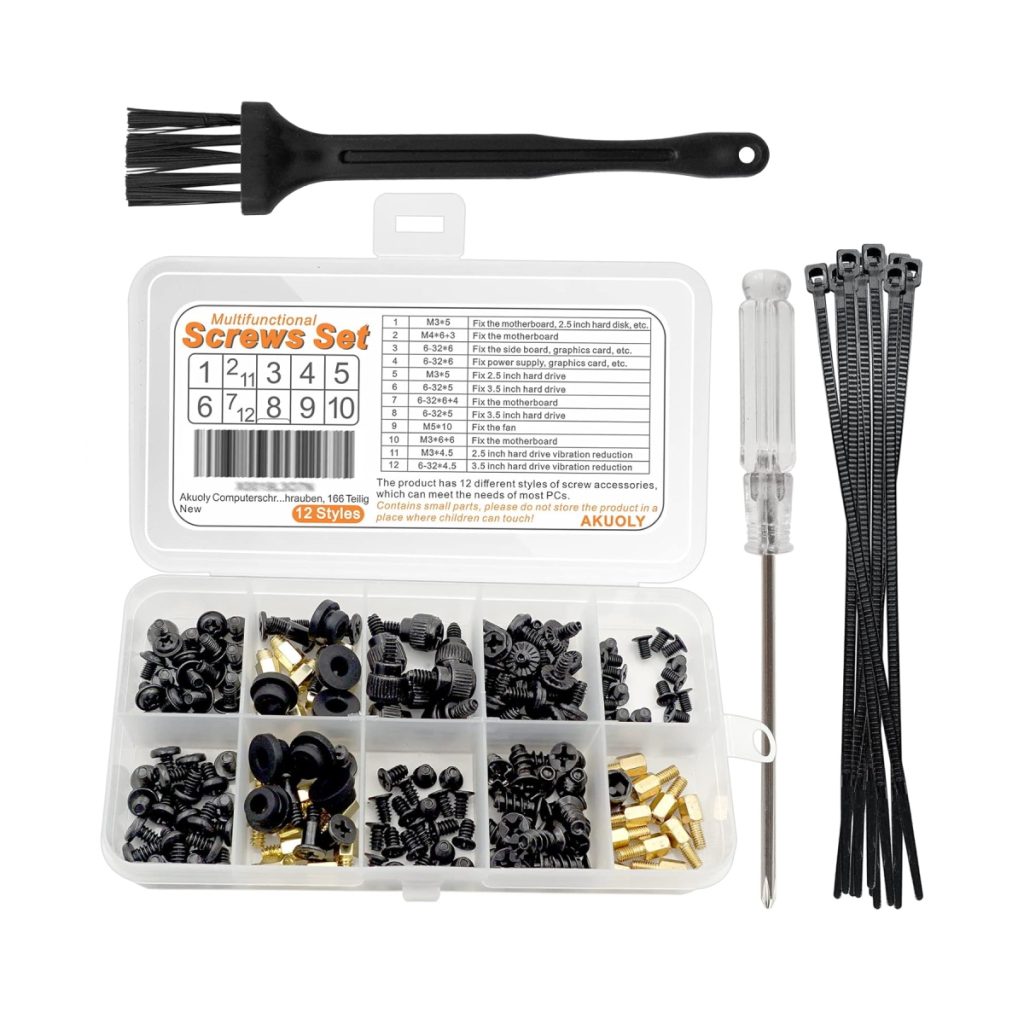
In custom PC building, various parts such as the motherboard, graphics card, and storage devices need to be fixed to the case, so the right types and sizes of screws are necessary.
For general parts configurations and numbers, the screws included with the PC case are usually enough.
However, if there are many parts, more screws may be needed, so there is a chance of running out.
In such cases, it is necessary to purchase an additional screw set.

Summary: Get Through Assembly with Accessory Parts!
Accessory parts that play a supporting role when something is missing have been introduced.
Knowing that there are such small parts besides main PC parts like the CPU and memory can help avoid panic if a problem occurs during assembly.
So, just keep in mind what kinds of accessory parts exist.
For other parts, basic knowledge, roles, and how to choose from the perspective of performance and compatibility are also explained, so please refer to them.
≫ Related article: PC Parts List and Explanation of Each PC Part [A Must-Read for Custom PC Beginners]
Select PC parts and online stores to instantly generate an estimate, check compatibility, and calculate power requirements. You can save up to five different builds, making it easy to try out multiple configurations.
≫ Tool:PC Parts Estimation & Compatibility Check Tool
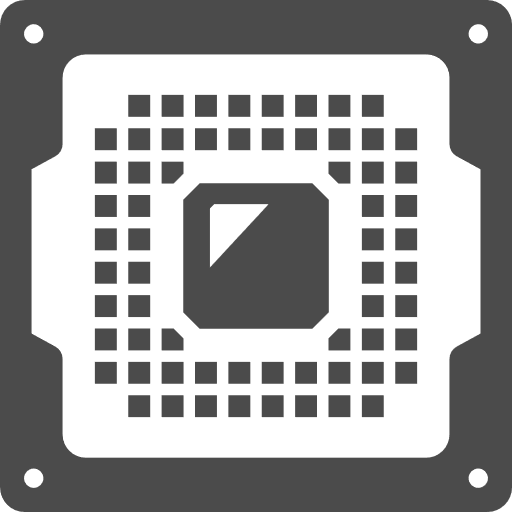 ZisaLog: Beginner’s Guide to Building a Custom PC
ZisaLog: Beginner’s Guide to Building a Custom PC 